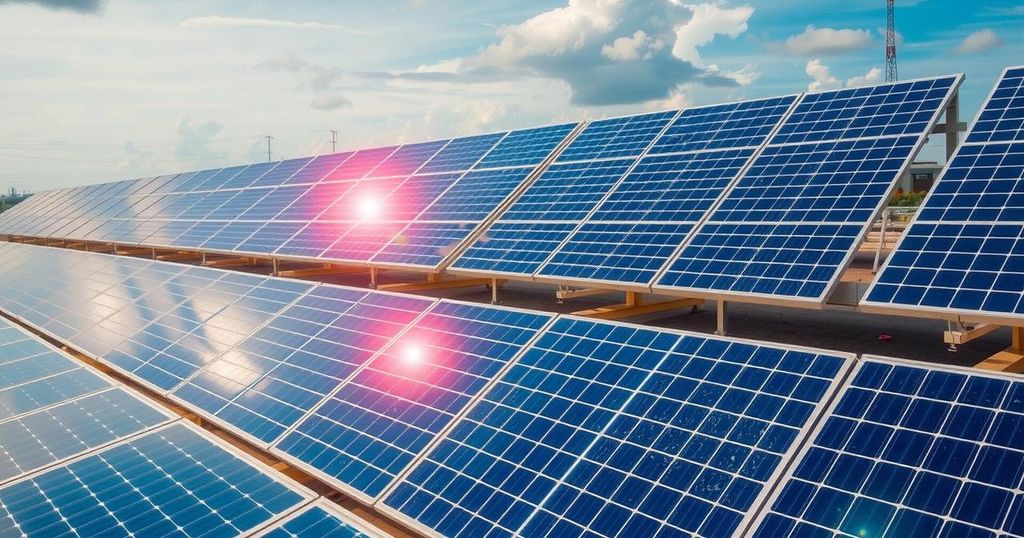Malaysia’s solar industry is confronted with new tariffs under the Trump administration, prompting calls for increased local content to mitigate risks. Historical investment patterns illustrate the country’s strategic role in solar manufacturing, with investigations into trade practices further complicating the landscape. Adaptation strategies focusing on local engagement and market diversification are essential for navigating the ongoing trade challenges and sustaining growth.
The solar industry in Malaysia faces significant challenges due to potential new tariffs proposed under the Trump administration. To counter these uncertainties, Malaysian academic Tham Siew Yean advocates for increasing local content within existing operations rather than perpetually relocating to avoid tariffs. Malaysia has historically attracted foreign direct investment in solar energy through various incentives. Notably, the presence of companies like First Solar and Sunpower from the US, as well as Chinese firms such as JA Solar and Jinko Solar, illustrates the country’s importance in the solar market. Historically, tariffs imposed during Trump’s first administration included a 30% safeguard for solar products, which subsequently decreased yearly. The Biden administration introduced a 24-month moratorium on certain solar imports to bolster domestic solar manufacturing, causing a surge in exports from Malaysia. The US Department of Commerce has recently conducted investigations into anti-circumvention practices involving solar imports from Malaysia. Companies cleared of these allegations, such as Hanwha Q CELLS and Jinko, are under scrutiny, with further investigations resulting in countervailing and anti-dumping duties on solar imports. As companies navigate these tariffs, they are incentivized to focus on local content and seek exemptions based on domestic investment. Increasing local engagement may help maintain competitiveness against cheaper Chinese manufacturers while diversifying export markets beyond the US may mitigate risks associated with shifting trade policies. Overall, while tariffs pose challenges, strategic adjustments by Malaysian firms and government initiatives may allow the industry to adapt and thrive despite ongoing uncertainties in international trade policy.
The discussion surrounding Malaysia’s solar industry is inherently tied to the broader geopolitical landscape and changes in trade policy initiated by the Trump administration. Historically, Malaysia has been viewed as a favorable location for solar manufacturing due to its investment incentives and strategic position in Southeast Asia. The introduction of tariffs has prompted manufacturers to reassess their operational frameworks, leading to potential shifts in manufacturing locations while balancing local content requirements. Investigations into anti-circumvention practices reflect heightened scrutiny of imports from Southeast Asia, particularly as US policy evolves. Thus, the solar sector’s response to tariffs remains an evolving narrative that intertwines local economic interests with global market dynamics.
The future of Malaysia’s solar industry in the context of US tariffs hinges on strategic adaptations and innovative responses. By augmenting local content and potentially accessing exemptions based on domestic production levels, Malaysian solar companies can enhance their competitiveness in the face of tariffs. Moreover, diversifying export markets may mitigate reliance on the US, crucial for long-term sustainability amidst evolving trade landscapes. As manufacturers navigate these challenges, domestic policies and firm-level strategies will fundamentally determine their resilience and growth in the solar sector.
Original Source: www.thinkchina.sg







